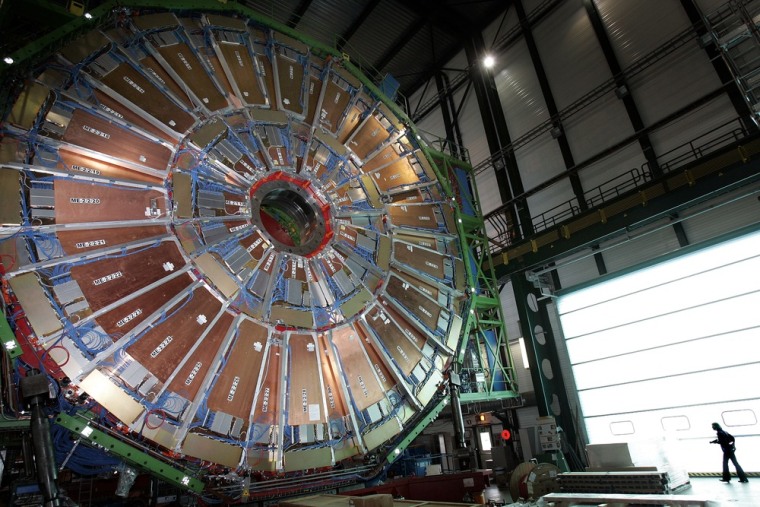Are you ready to thrill to the sound of the Higgs Boson Sonata, the Dark Matter Cantata or perhaps the Black Hole Symphony?
Compositions like these are starting to emerge from the CERN particle physics research center on the French-Swiss border near Geneva.
Scientists at CERN's Large Hadron Collider are converting the cosmic phenomena they are chasing through the huge underground machine into musical sound in their state-of-the-art computers.
To do it, they use a sonification technique that converts pure data gathered from the LHC experiments into sound, according to physicist Lily Asquith.
The detectors in the machine, which is probing the origins of the universe, can reconstruct the pathway of the particles after they are smashed together at near light-speed and calculate how much energy each leaves along its path.
"If you use the right software, you can get really nice music out of the particle tracks," explained Asquith, who works on the LHC's ATLAS detector and was one of the originators of what is called the LHCsound project.
A key aim of the project is to help promote public awareness about CERN and the LHC.
Sounds of science
To this end the project team has launched a chatty website, dubbed "The Sounds of Science" with a nod to the 1960s hit song by Simon and Garfunkel, "Sounds of Silence."
"We want everyone to be able to share in the wonder and excitement of what we are doing, and this seems a good way of showing the awe-inspiring magnificence of it all," Asquith told Reuters.
The enthusiasm is directed at a global public. CERN, founded in 1954 as a European body and now with 20 nations from the continent on its ruling Council, recently decided to open membership to the rest of the world.
Some of the sounds created so far can be heard on the website, including a musical embodiment of the Higgs Boson — the mysterious particle that is believed to give mass to matter and without which no universe would have emerged from the primeval "Big Bang" explosion 13.7 billion years ago.
"You can listen to the decay of a Higgs boson in the ATLAS detector, or to a proton-proton collision inside the LHC," Asquith said. Since the project's launch in June, the LHCSound team has added the sonifications of a top quark jet and a marimba-flavored sweep of the ATLAS detector.
The LHCsound team are also working on applications and ringtones for mobile telephones.
But there is more to this project than the simple — or not quite-so-simple — and sometimes eerie sounds that resemble the discordant notes of an avant-garde serial music composition.
Musicians around the world have already been asking the LHCsound team for data files which can be read through the British-based Composers Desktop Project aimed at electro-acoustic composers and sound designers.
And if avant-garde is not your cup of tea, you can still feel the vibe of the Large Hadron Collider by grooving to the girl-band sounds of Les Horribles Cernettes or getting down with Kate McAlpine's "Large Hadron Rap" and "Black Hole Rap."
This report includes information from Reuters and msnbc.com.
